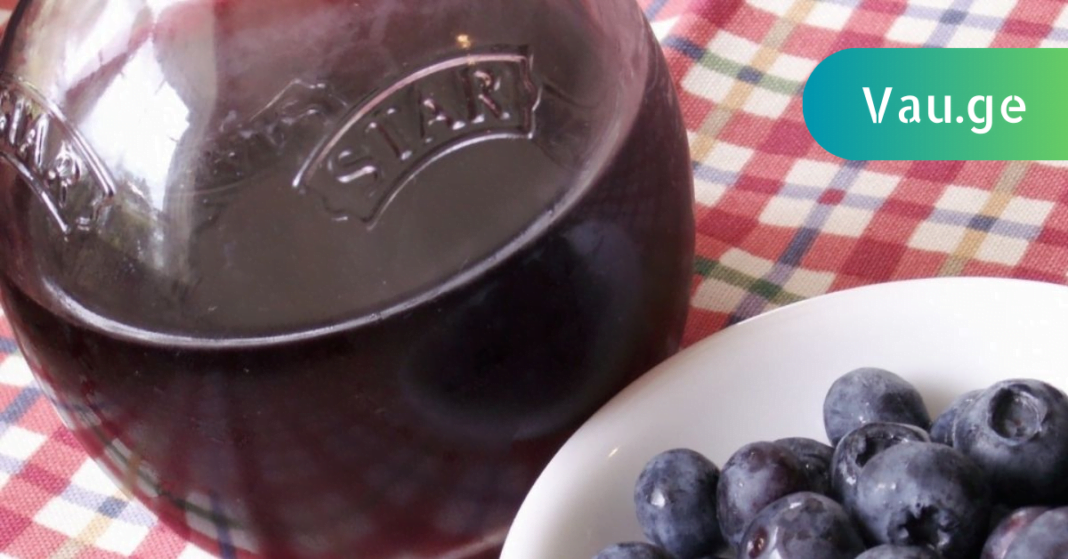The Chemical Composition of Blueberries
Blueberries are not only delicious, but they are also packed with essential nutrients that can significantly improve your health. Just 100 grams of blueberries contain approximately 44 kilocalories, making them a low-calorie yet nutrient-dense fruit.
Vitamins in Blueberries:
- Vitamin PP (Niacin)
- Vitamin B1 (Thiamine)
- Vitamin B2 (Riboflavin)
- Vitamin C (Ascorbic Acid)
- Vitamin E (Tocopherol)
Minerals in Blueberries:
- Iron
- Phosphorus
- Sodium
- Magnesium
- Calcium
- Potassium
Natural Acids Present:
- Lactic acid
- Citric acid
- Malic acid
- And other organic acids
It’s important to note that blueberries are powerful antioxidants. This fruit is especially beneficial for individuals whose work strains their eyes, such as those who spend long hours in front of screens or in dimly lit environments.
Why Older Adults Should Use Blueberries
This natural remedy is highly recommended for elderly individuals. As we age, the body becomes more vulnerable to the damaging effects of free radicals. Blueberries help protect the body by neutralizing these harmful molecules, thereby slowing down the aging process and reducing the risk of chronic diseases.
Pharmacological Benefits of Blueberries
For centuries, blueberries have been used not only as food but also as a natural treatment for various health conditions, particularly those related to the digestive tract. In the second half of the 20th century, scientific research confirmed what traditional medicine already knew — blueberries have impressive healing properties. They are especially effective for cardiovascular health.
Blueberries possess strong antioxidant properties and contain over 15 types of anthocyanosides, compounds known for their ability to protect veins and arteries. These substances also improve the flexibility of cell membranes and prevent the formation of blood clots.
Moreover, blueberries have a unique ability to protect collagen — a protein that strengthens blood vessel walls. This is particularly important for preventing vascular damage and maintaining proper circulation.
Eye Health and Vision Support
Many ophthalmologists recommend dietary supplements that include blueberries. This is because blueberries are proven to strengthen blood capillaries and improve blood flow to the retina. Blueberries stimulate the organs responsible for producing pigments essential for the retina to quickly adapt between light and dark environments.
Cataracts often develop due to the oxidative damage caused by free radicals to the delicate proteins of the eye lens. Remarkably, studies show that cataract development slows down in 97% of patients who consume blueberries regularly.
Blueberries and Diabetes
Few people realize that blueberries have the ability to significantly reduce blood sugar levels. In addition, they help lower the glycoproteins associated with diabetes complications such as neuropathy and retinopathy.
Support for the Digestive System
Blueberries have been found to be effective in treating and alleviating various digestive tract disorders, including:
- Enterocolitis (inflammation of the intestines)
- Gastric ulcers
- Duodenal ulcers
Benefits for the Cardiovascular System
Blueberries are also beneficial for the heart and blood vessels. They help manage conditions such as:
- Atherosclerosis
- Increased capillary permeability
- Varicose veins
How to Prepare and Use Dried Blueberries
There are two popular ways to prepare blueberry infusions: cold and hot. Both methods preserve the health benefits of the fruit and can be consumed daily for optimal results.
Cold Blueberry Infusion
To prepare a cold infusion, take 20 grams of dried blueberries and crush them slightly. Place the crushed berries into a glass or enamel container and pour 200 milliliters of cold (preferably boiled and cooled) water over them. Let the mixture sit for 8 hours. Once ready, divide the infusion into three equal parts and drink it 30 minutes before each meal — three times a day.
Hot Blueberry Infusion
To prepare a hot infusion, again take 20 grams of dried blueberries and crush them lightly. Put them into a glass or enamel container and pour 200 milliliters of boiling water over them. Cover the container and let the infusion steep for 45 minutes. Strain the liquid through cheesecloth or a fine strainer, divide it into three portions, and drink 30 minutes before meals, three times a day.


















